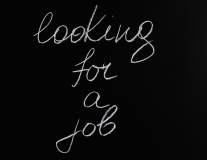It’s happening again: Just as you learned how to recruit Millennials, a new generation is entering the workforce.
Born between 1995 and 2015, members of Generation Z range from 4 to 24 years old. Although many are still in school, older Gen Zers have graduated college and are hunting for adult employment.
What if you’re struggling to attract them? Millennials may respond to flex schedules and promises of remote work, but Gen Zers are different. If you want to win them over, check out:
1. Marketing to Gen Z by Jeff Fromm and Angie Read
Who better to help sell your company to Gen Z than marketers? Written by FutureCast President Jeff Fromm and Angie Read, Barkley’s vice president of growth insight, Marketing to Gen Z unpacks the trends shaping Gen Z’s choices. They’re idealistic like Millennials, but also industrious and pragmatic like their parents’ generations. Covering Gen Z’s sense of humor, shopping habits, favorite influencers, and more, this book is as practical as it is entertaining.
2. iGen by Jean Twenge
Crack open iGen by psychologist Jean Twenge, and you’ll learn just how wide the generational divide is between Gen Z and Millennials. Gen Z was the first generation to use digital devices throughout its youth. As a result, Gen Zers spend less time socializing than any prior age group. They’re less religious, less tied to social norms, and more mobile. To get Gen Z to commit, Twenge explains how employers can demonstrate values like safety and equality.
3. Answering Why by Mark Perna
Mark Perna’s Answering Why tackles the trends of “younger” generations, not Gen Z specifically. However, it’s a guidebook for leaders looking to inspire young professionals. Having won 2019 Independent Press Awards in the education and career categories, Perna’s book shares tips for helping Gen Z discover its “why.” Perna also explains how to tweak professional development programs for a generation struggling with self-discovery.
4. Gen Z @ Work by David and Jonah Stillman
Written by generational expert David Stillman and his 17-year-old son, Jonah, Gen Z @ Work describes young grads’ unique take on careers and work. Just as it does with its purchases, Gen Z looks for jobs that are customizable, digitally driven, and fast-paced. Because the book draws on CEO interviews, nationwide studies of Gen Z’s workplace attitudes, and commentary from Gen Zers themselves, Gen Z @ Work takes a data-driven look at how leaders can recruit, manage, and retain their youngest employees.
5. The Gen Z Frequency by Gregg Witt and Derek Baird
Impatience, flexibility, and confidence are key traits of Gen Zers, according to The Gen Z Frequency. Youth marketing experts Gregg Witt and David Baird survey the tactics, messaging, and attitudes that resonate with young professionals. Packed with case studies and insights from Gen Z’s top brands, Witt and Baird’s book explains how employers can create compelling content. As a result, they can pitch themselves to purpose-driven digital natives.
6. Generation Z in the Workplace by Candace Steele Flippin
Focused on generational gaps, Candace Steele Flippin’s Generation Z in the Workplace explains how employers can leverage cross-generational differences, not tiptoe around them. Flippin, a public relations executive and research fellow at Case Western Reserve University, suggests communication strategies. These can motivate and integrate Gen Zers within their broader teams. A collaboration-focused book, Generation Z in the Workplace drives home the truism that everyone has something to offer.
7. The Care and Feeding of Your Young Employee by Jamie Belinne
Jamie Belline, assistant dean for career services at the University of Houston’s Rockwell Career Center, knows Gen Z’s expectations can be frustrating to employers. Belline shares simple techniques leaders can use to promote productivity and engagement among their youngest workers. Although many of Belline’s ideas also apply to Millennials, she digs into the disengagement issues they share with Gen Z employees.
If your office is Gen Z-free, don’t give up. Gen Zers are diverse and socially conscious, but they’re also hungry for employers who reflect their values. Use these books to tweak your pitch — you’ll find young professionals aren’t such tough targets after all.


















